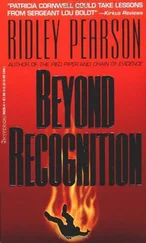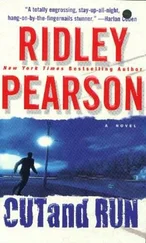“Impossible at the moment. I told the police, I want nothing more to do with it beyond being notified prior to whatever arrests may be made. Should they miss someone, I do not want to bear the brunt of their reprisals.”
“Then please, help us.”
“Please, do not call me again.”
Hearing his soothing and melodic voice, she’s reminded of fantasies she had believed long buried.
“I found you,” she says. “Others could as well. We should talk.”
A protracted silence results. “Are you there?” she finally asks. “A few minutes is all. A few questions and you are done with me.” You called me back, she wants to shout.
There’s a steadily approaching sound in the background of the call. At first, she can’t place it, but then she knows what it is: a tram. Fahiz is in the inner city.
“Hate crimes?” he asks. “To them, we all look the same.”
To them , she notes. Plural.
“Your attackers were Dutch? European?”
She expects he may have hung up. When she hears his breathing, she says, “A few minutes is all.” She gives him time to think. “You pick the time and place.”
A long silence hangs over the line. Finally, he says, “Number fifty-four ferry to Noord. Alone. If I don’t contact you onboard, then walk straight up the promenade. Stay on that road. The first departure after the top of the hour. You have forty minutes.” Fahiz ends the call.
Grace stares down at the screen of the phone, her thumbs poised to send Knox a text message. Alone. She follows through with the text ending in all caps:
Agreed to meet: #54 ferry to Noord. 40 mins. Alone! YOU CANNOT BE ON FERRY
She wishes she could trust Knox.
—
THE NOORD DISTRICT,with its postcard villages of Ransdorp and Durgerdam is separated from the touristy central district by the brown turbid waters of the IJ harbor. Pedestrians, bicycle and scooter riders, as well as any commuters using Centraal Station forgo the various traffic tunnels, riding the three free ferries that roundtrip in ten minutes. The Venice of the Netherlands, Amsterdam is home to ferries, water taxis and myriad private canal boats, lending the city a romantic, historical seductiveness.
The easiest way to reach the Noord ferries is to cut through Centraal Station. It’s late afternoon—nine minutes remain until his deadline at the top of the hour—and the always busy station is bedlam. The coffee and news shops bulge with customers, choking foot traffic on the concourse. A woman’s voice over a loudspeaker grumbles train numbers and track numbers and times and destinations to where it sounds like a quiz show. There is every form of life here, from the stoned vagabond youth attracted by the city’s open pot cafés, to well-heeled businessmen and -women, mothers pushing strollers, gray-bearded seniors struggling to place their canes into the sea of shoe leather. Grace holds herself back to move with the pace of the crowd, not wanting to stand out. She wonders not if, but from where, Knox is watching. She hates to admit that along with the anxiety of having included him, there is an underlying sense of comfort that he’s likely nearby.
Outside the station, she crosses with pedestrians and turns left to the ferries. Electronic signs announce the Noord destinations and the countdown to departures. Grace slows, but does not stop completely on her approach. Uninterested in the destinations, it’s the numbers painted on the ferry pilot cabins that register with her: 55, 59, 71 . . . There’s an enormous two-level barge tied up to the wharf that contains thousands of chained and locked bicycles. It’s a bicycle parking lot for commuters who use Centraal Station. Sight of it stops Grace and she chastises herself for appearing the tourist.
54
The dock’s electric timer counts down from 3:46. Bicyclists and scooter drivers push into a tangle on the right of the vessel. Pedestrians enter through doors to the left and move forward in a knot as the clock is down to under two minutes and there’s a final rush to board. It’s jammed, only inches separating people. There’s the smell of humanity—perfumes, soaps, sweat, tobacco and wine breath. The stern gangway raises automatically and the ferry’s under way. She is stalwart in her refusal to scan the faces of the passengers, to search for a man studying her. She doesn’t want to spot Knox breaking promises. She can’t allow anger to poison her. She must remain calm and objective. A low-level EU bureaucrat following up on something she’d rather not.
The crossing is fast. Five minutes, tops. The air fills with blue motor oil vapor as the scooters start. The cyclists and pedestrians mix. It’s an orderly off-loading. People fan out. Bikes are mounted, backpacks slung on. Grace joins a flow of pedestrians walking straight ahead on a wide, tree-lined artery with pavement for cars, a substantial bike lane and a sidewalk for pedestrians. The transition to pastoral from the concrete of downtown is immediate. Lawns. Freestanding homes with wrought-iron fences. Birdsong. The air tastes cleaner. A different city, five minutes from Centraal Station.
Still no contact.
“We will turn around now,” speaks a male voice from behind. “I will take your phone.”
Grace hesitates. It’s like handing over her weapon.
“I’ll put it in airplane mode but there is no—”
“Shut if off.” His voice is sharp and icy, causing the opposite reaction in her: a spike of heat. He reaches for her. She pulls away.
“Easy!” she barks. The phone powers down. She shows it to him.
He holds out his hand, expecting its delivery. “No phone, no discussion,” he says.
“Such cloak and dagger,” Grace says.
He pockets her phone, turns her toward the ferry dock. “Walk.” He stays at her side, a quarter-stride behind. In the distance, two electronic ferry signs.
She has yet to get a decent look at him. In profile, he’s strong-featured, tall and unshaven. His left eye is swollen and he’s sporting three stitches above the cheekbone. He has lost a layer of skin. Confident this is finally the Fahiz she’s sought, she doesn’t allow herself a sense of satisfaction. His preparedness is a warning. If he wants to come across as an ordinary man in extraordinary circumstances, he has failed.
Since a young age she’s been drawn to the irrepressible overconfidence and swarthy looks of Turks. She finds their penetrating eyes hypnotic and their words carefully chosen. Appreciates that, as with Italian men, there’s no ambiguity about what it is they are after. Conquest is all that matters to them, and she controls them because she controls access. She’s never slept with a Turk. Can’t say the same about Italians.
Is Knox watching? she wonders.
The walk back to the ferry takes only a minute. The approaching vessel is mid-river and closing fast.
Several cyclists arrive and queue up, standing alongside their bikes. It takes her a moment to recognize the man wearing the beret. His bike has to be twenty years old. He’s stolen it. He will call it borrowing.
“After what has happened . . . someone with your particular credentials . . . the car bombing. My being assaulted. You must be half mad to investigate this.”
“Only half?”
“You joke? A man was killed.”
“Assistant deputy directors are allocated five minutes of humor a month.”
“Again,” he says.
The return ferry arrives. She repeats the boarding process, and there’s Knox chatting up a blonde while eating a candy bar and laughing into the gray mist that’s thick as teapot steam. He’s so deeply in character she wonders if he remembers why he’s here.
“Your . . . the people who assaulted you . . .” she says, “did they condemn you, make any kind of racial slur or—”
Читать дальше












